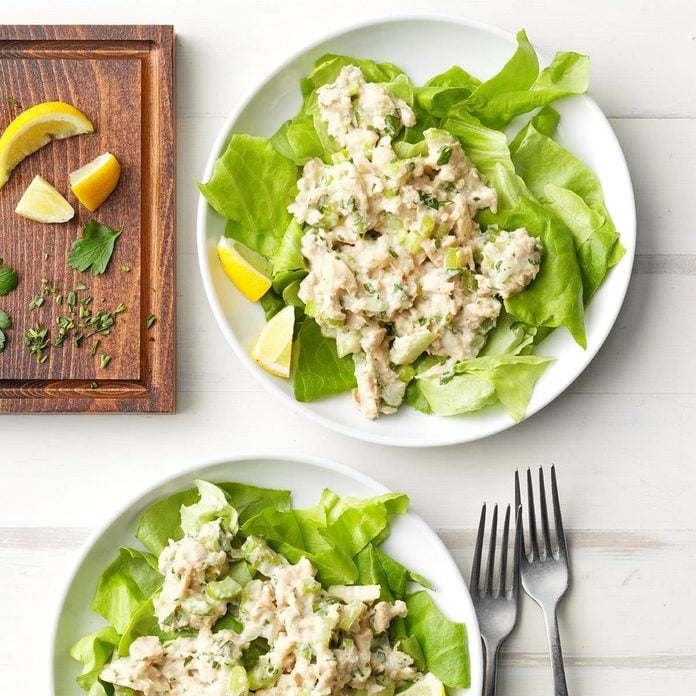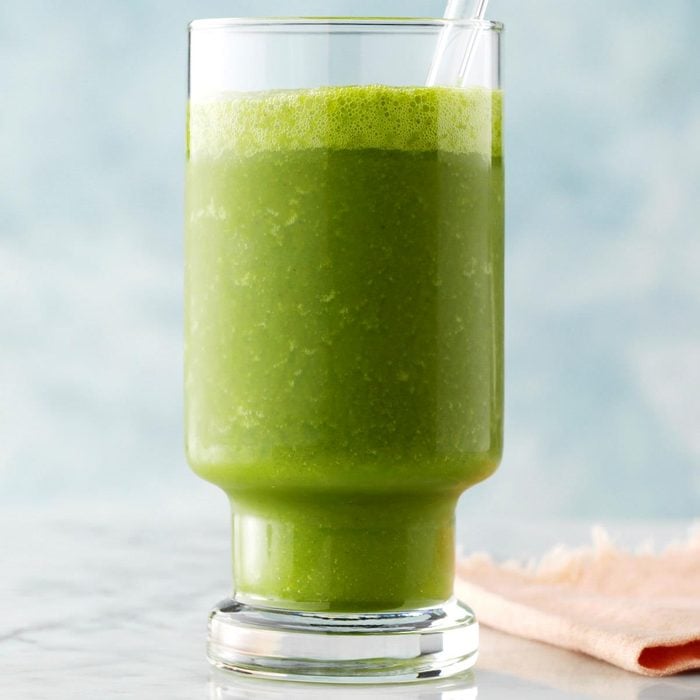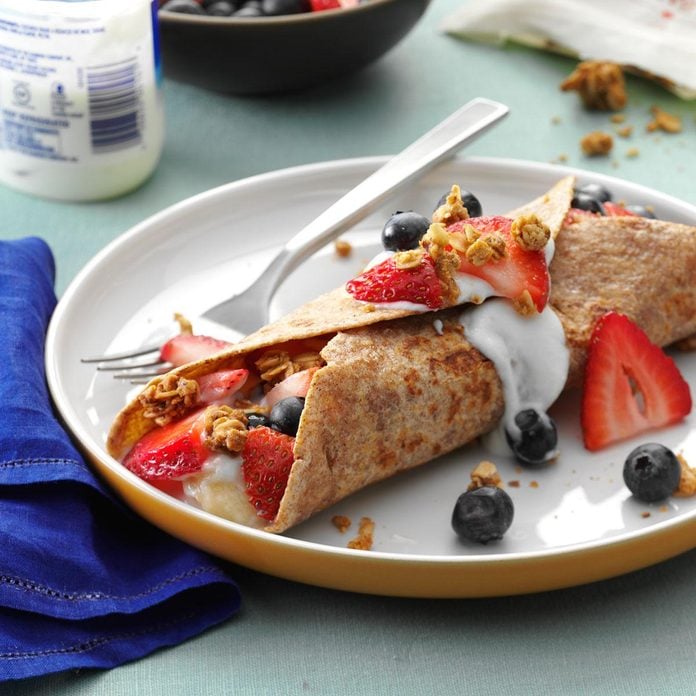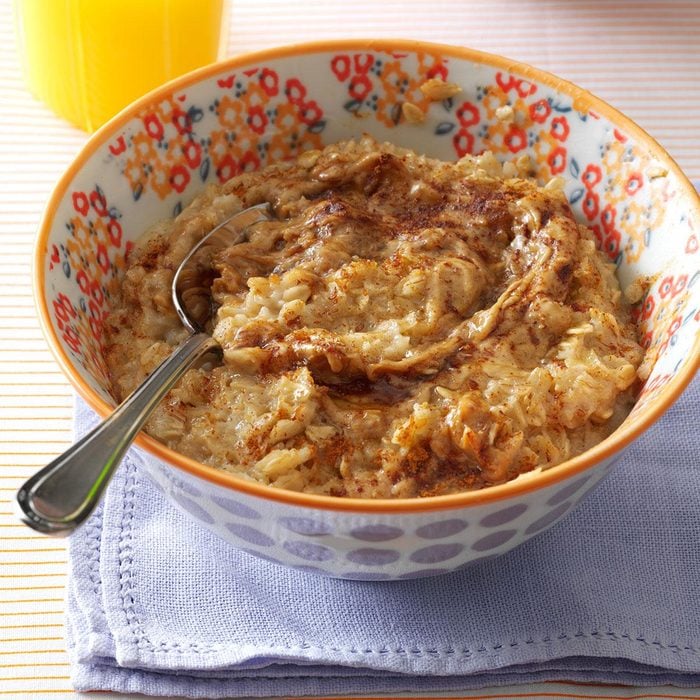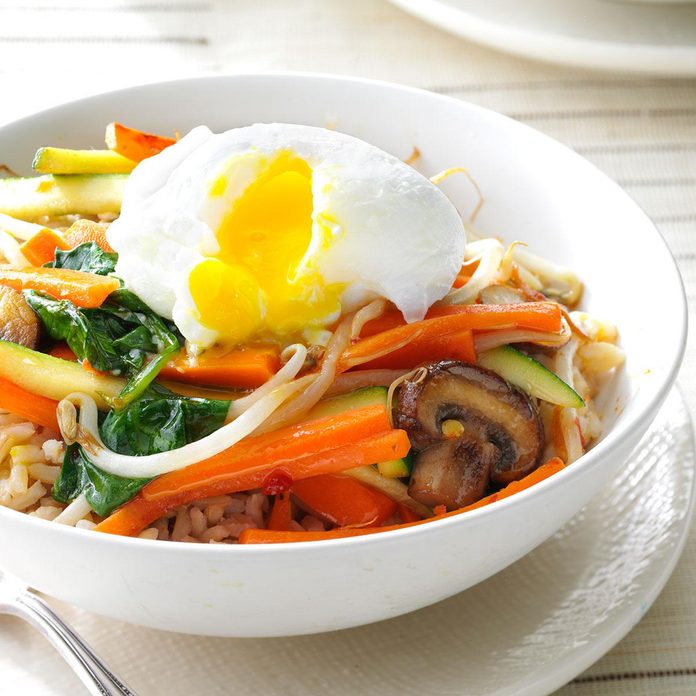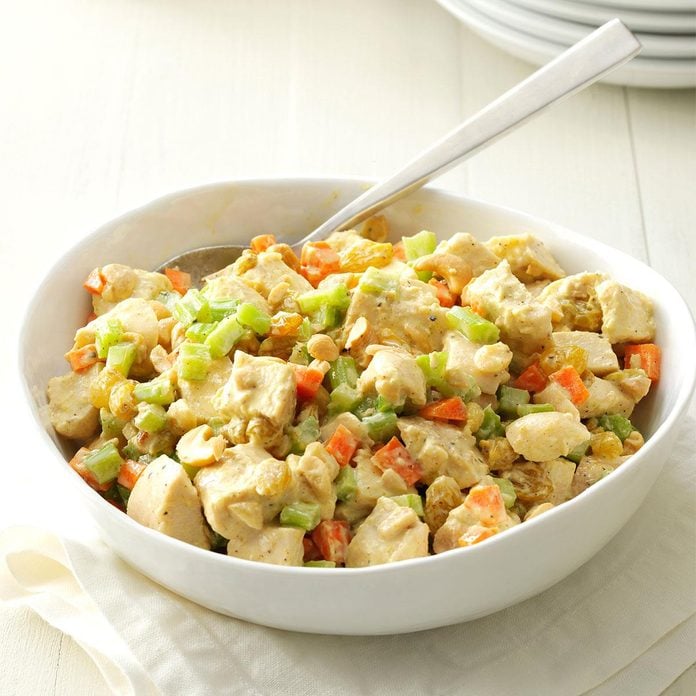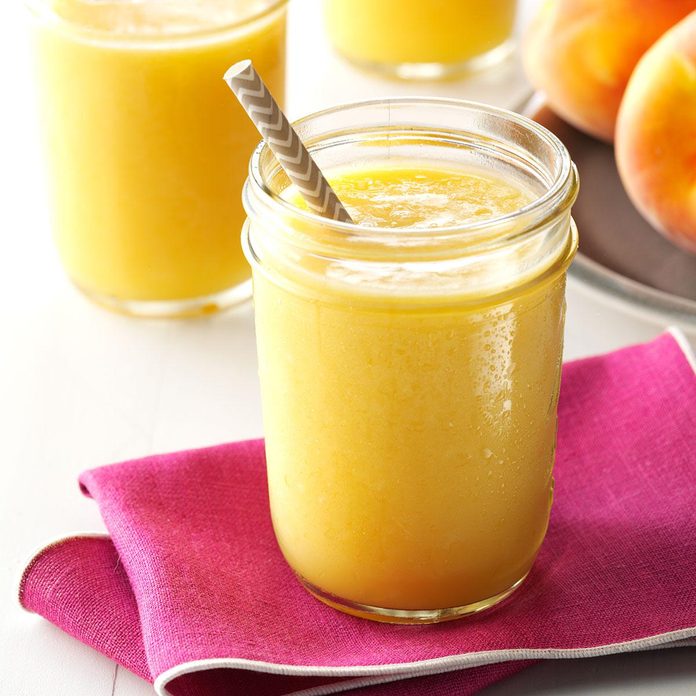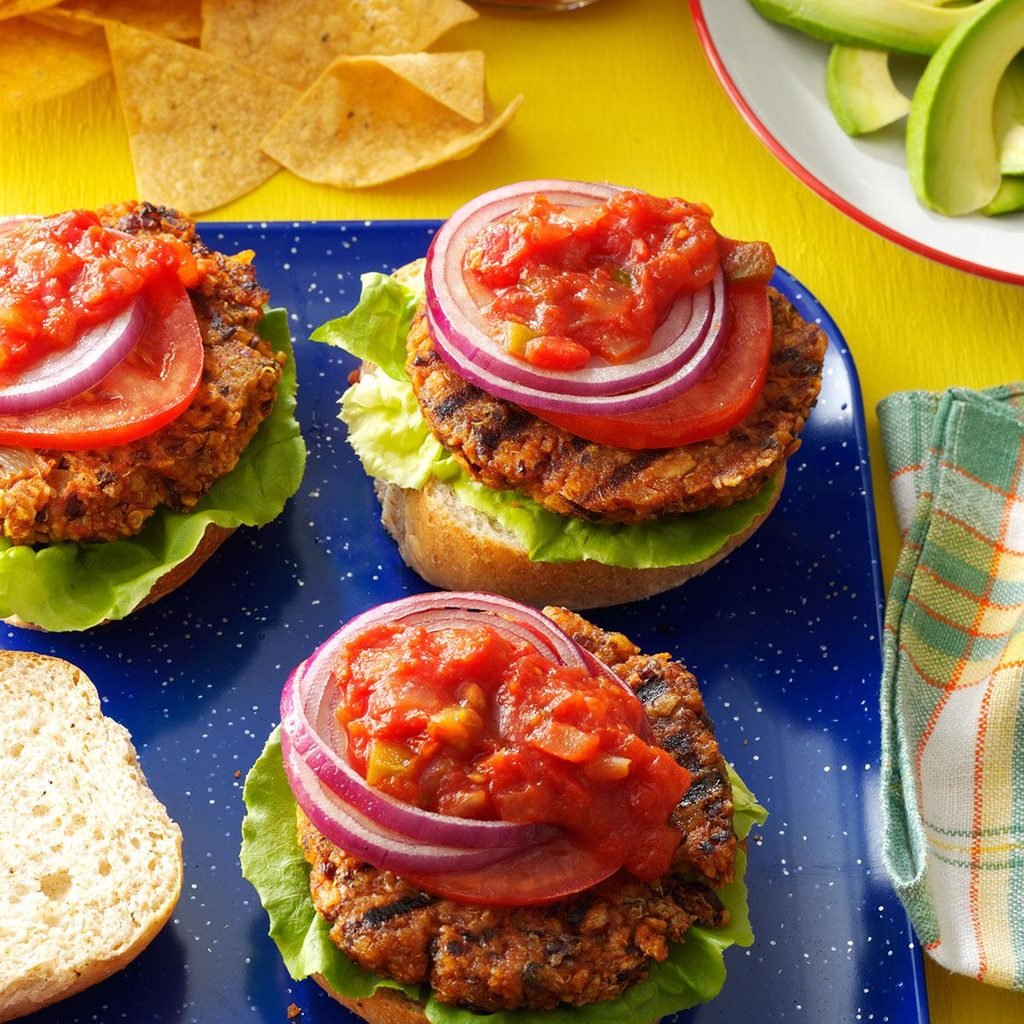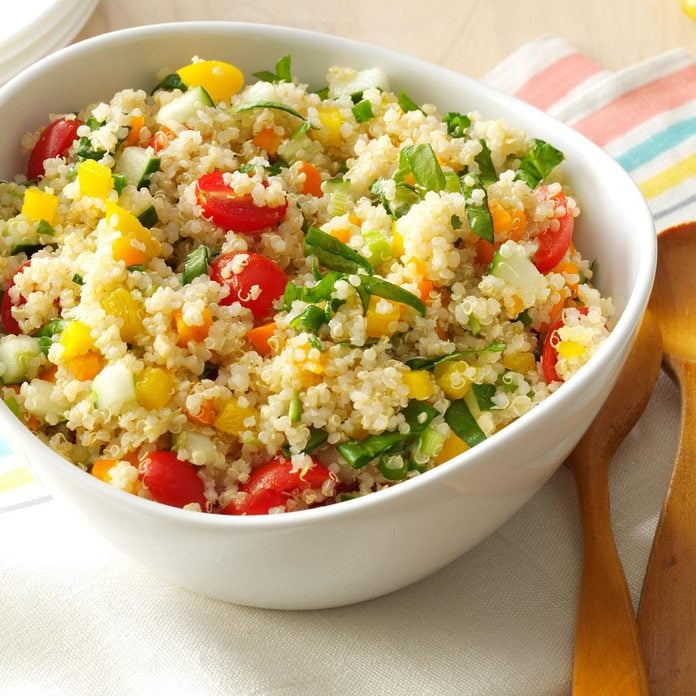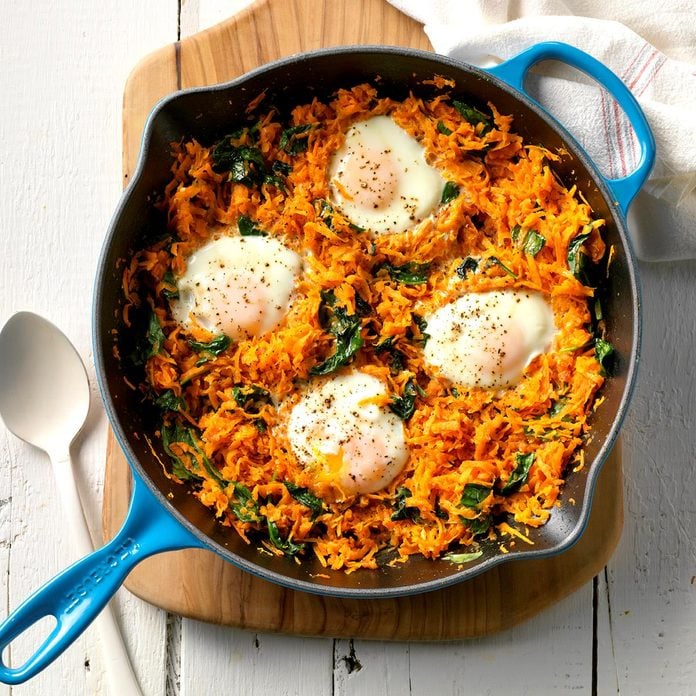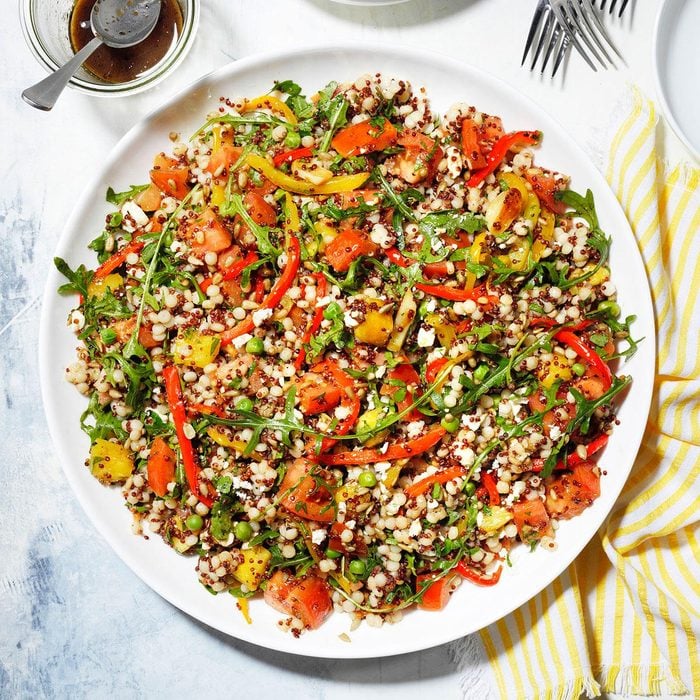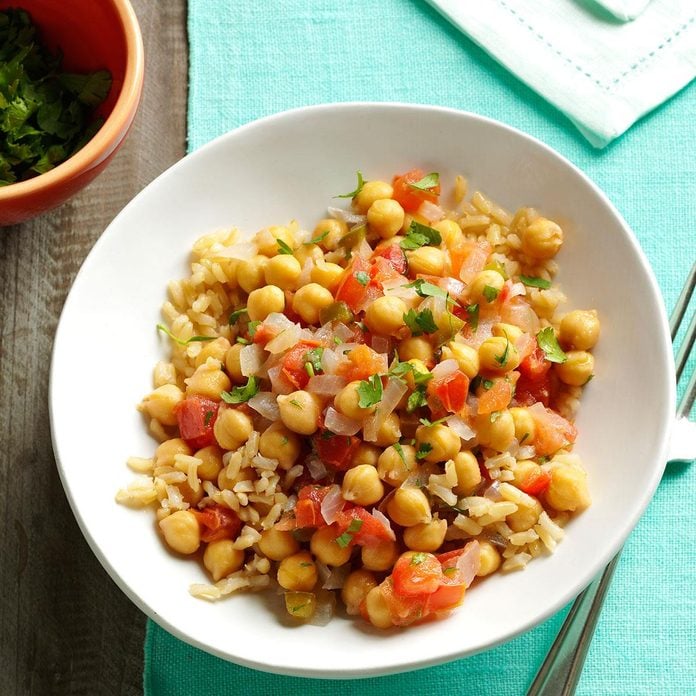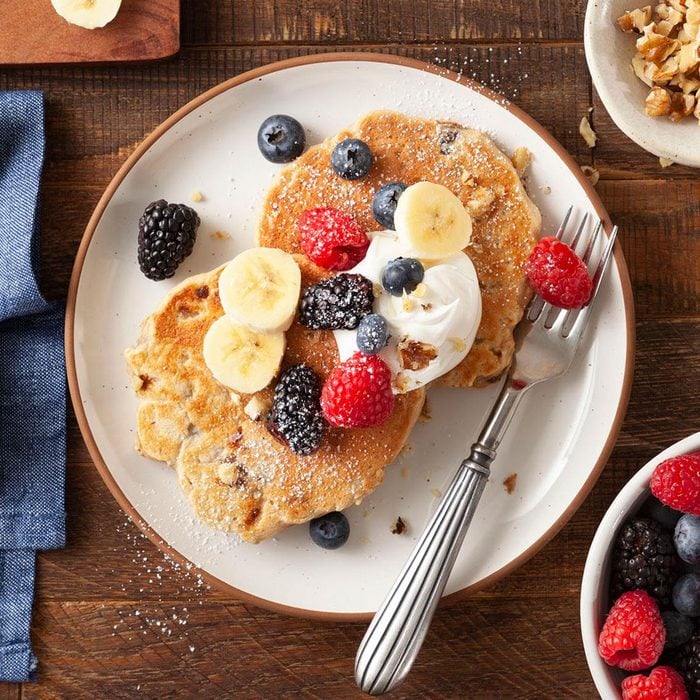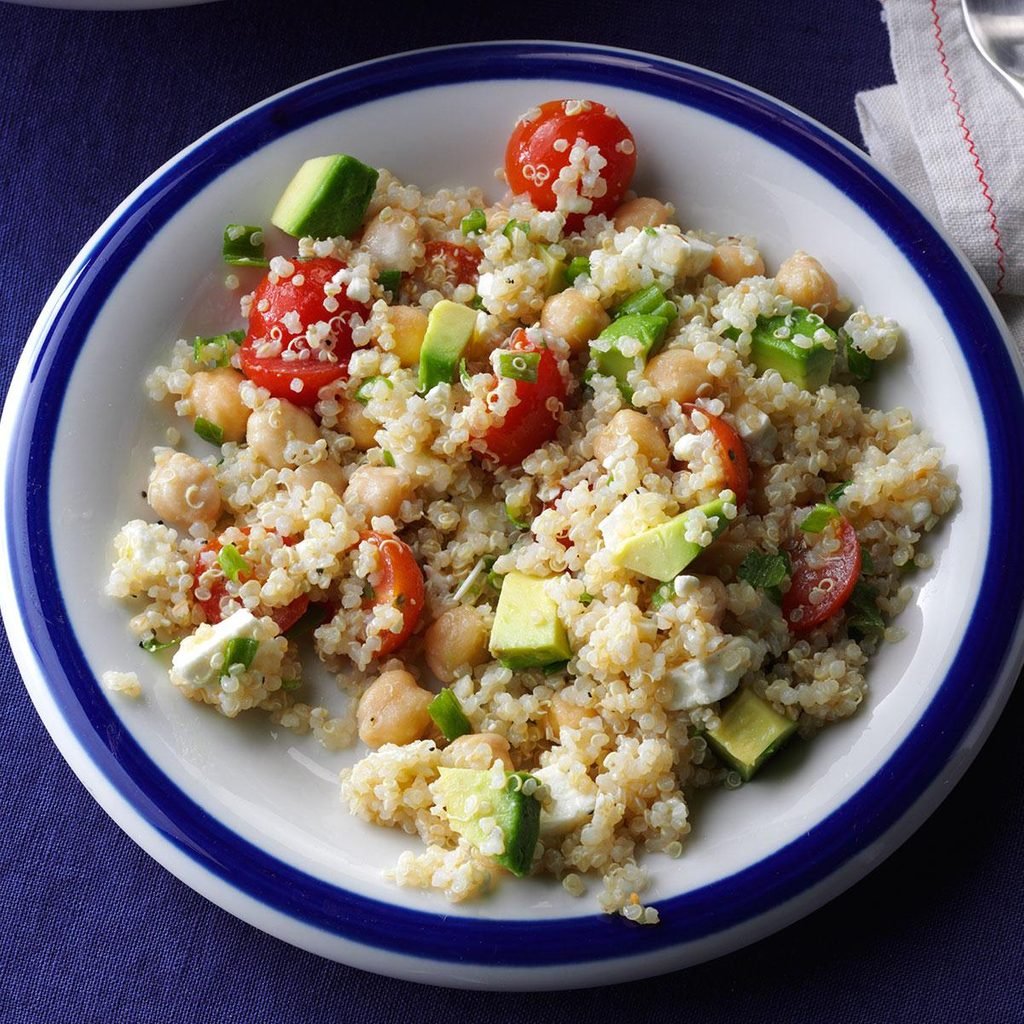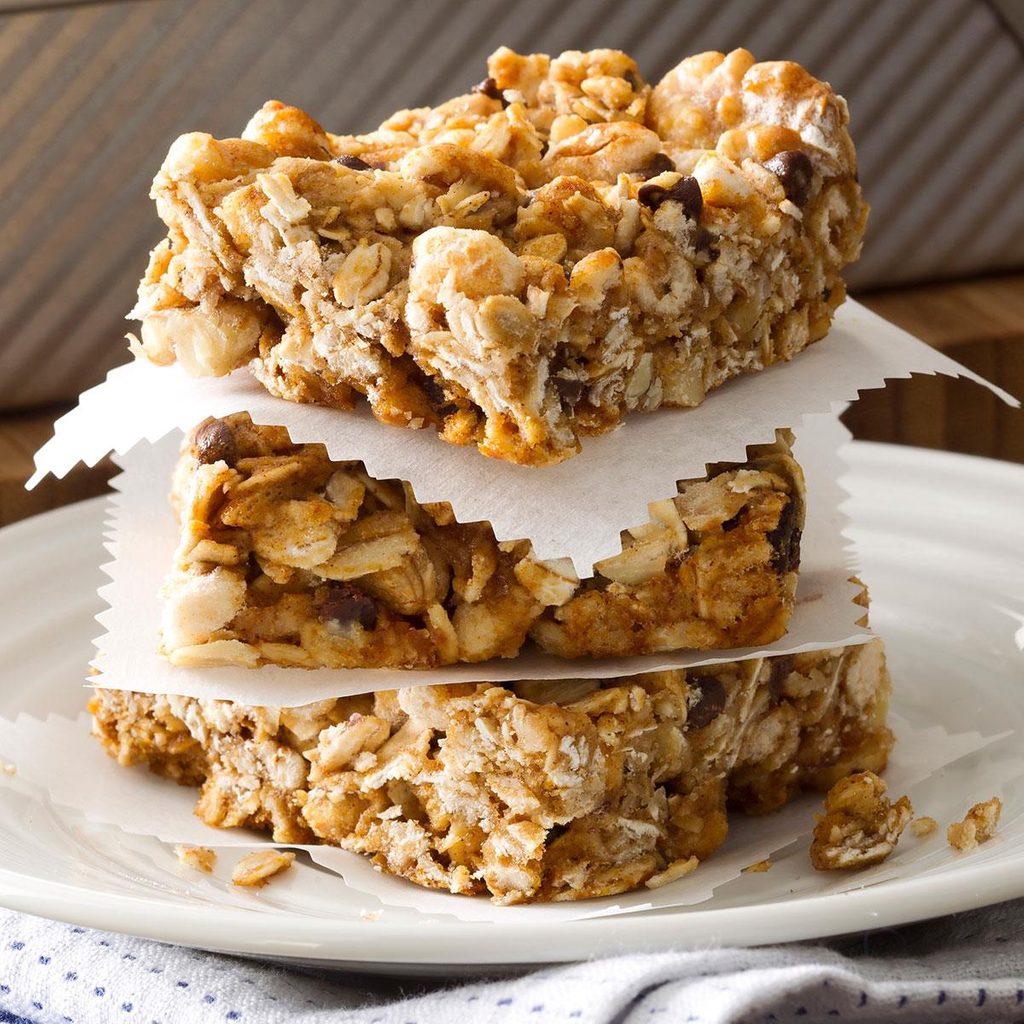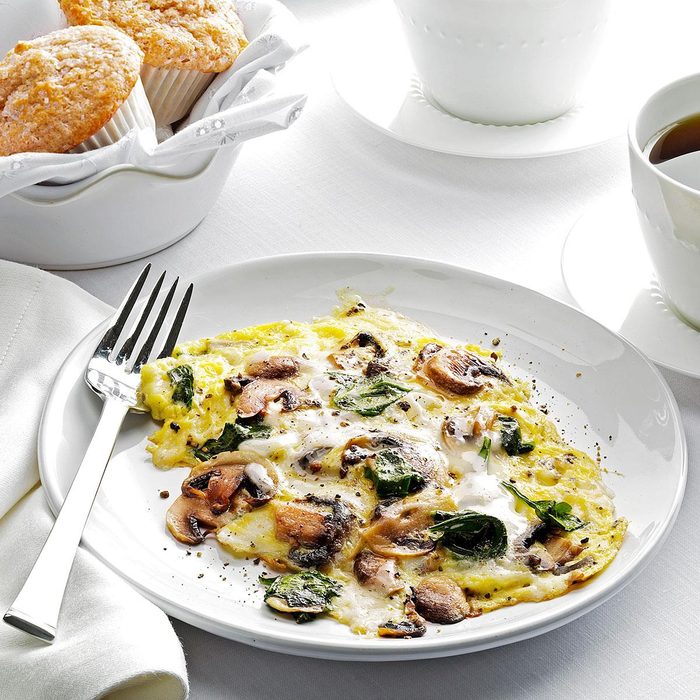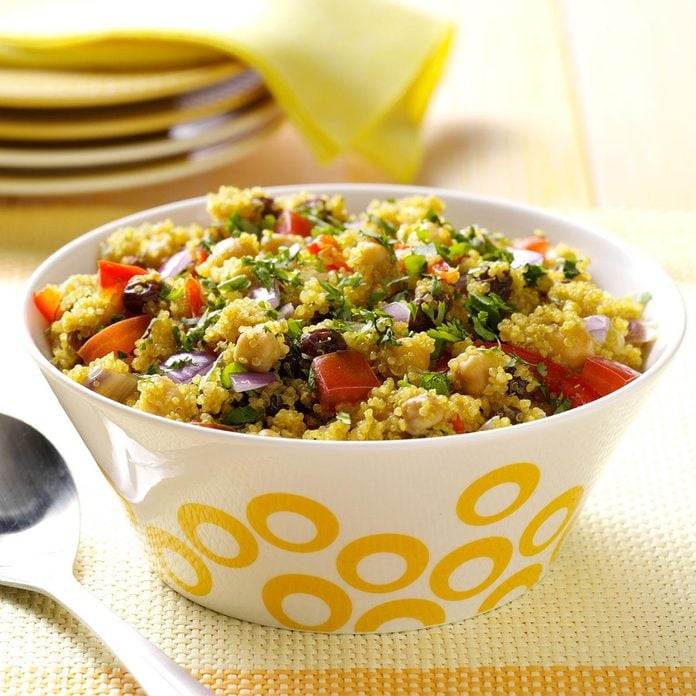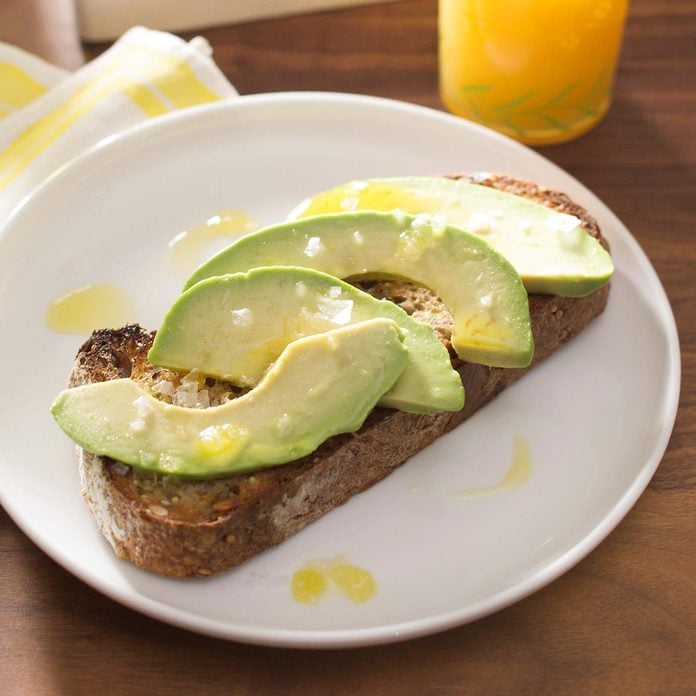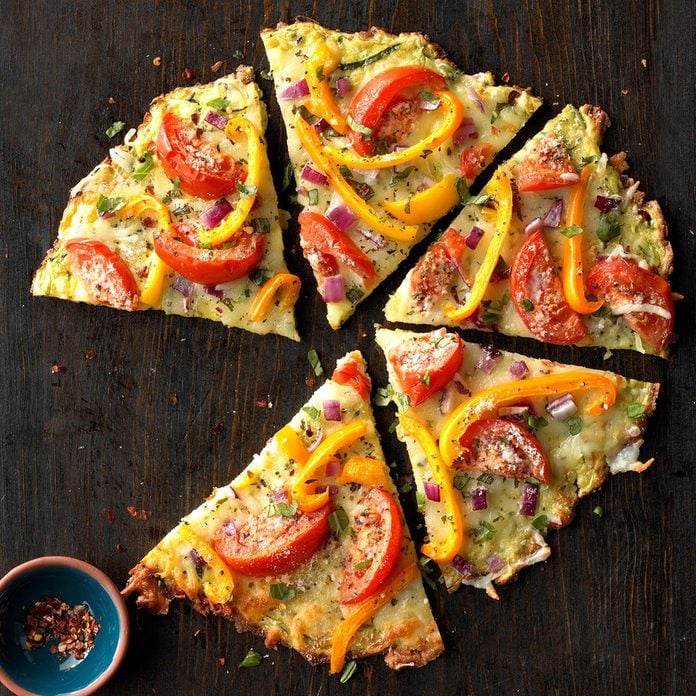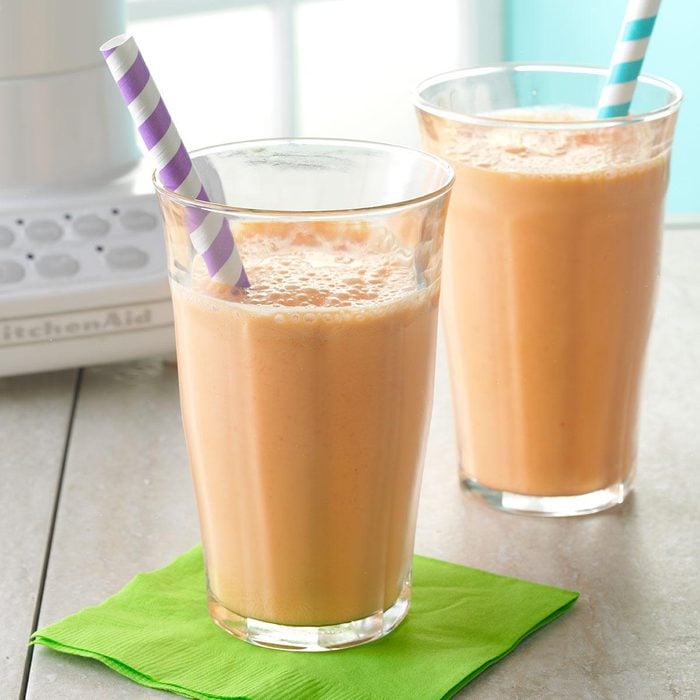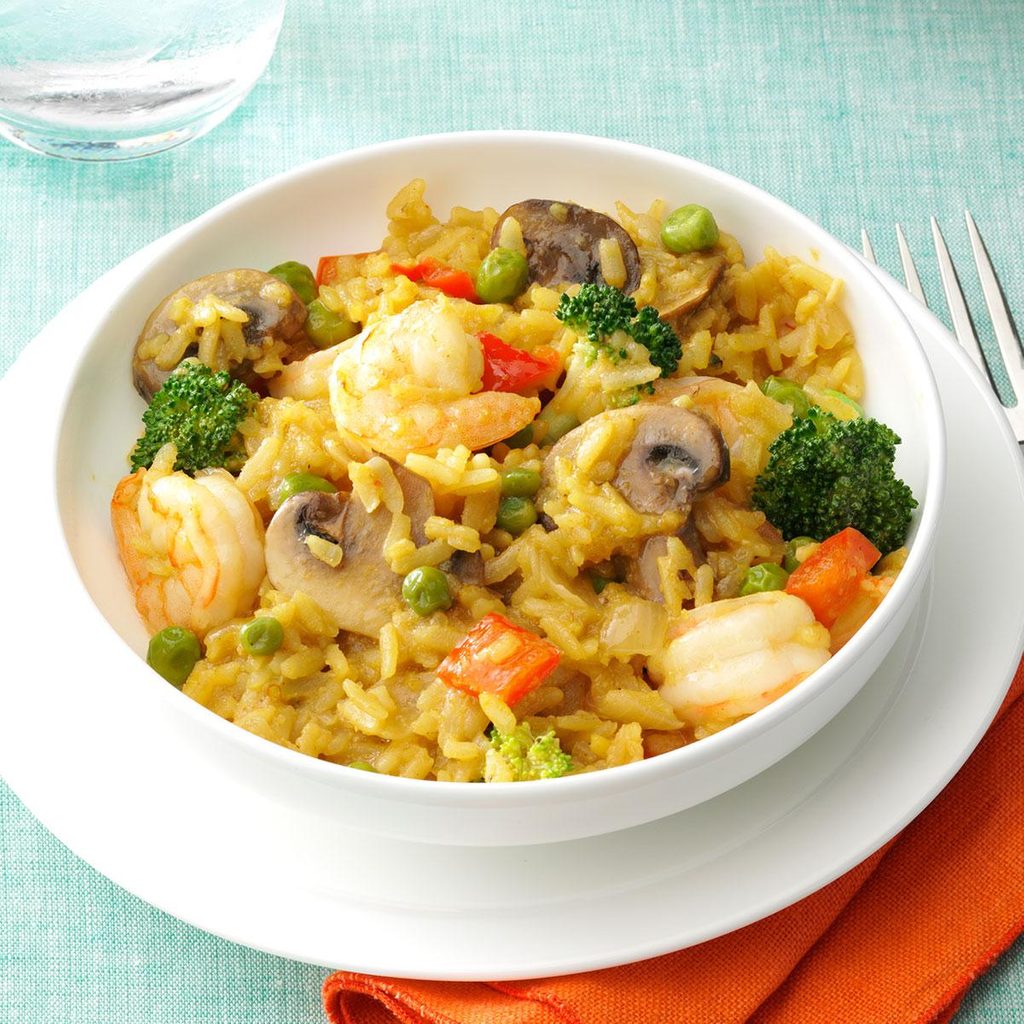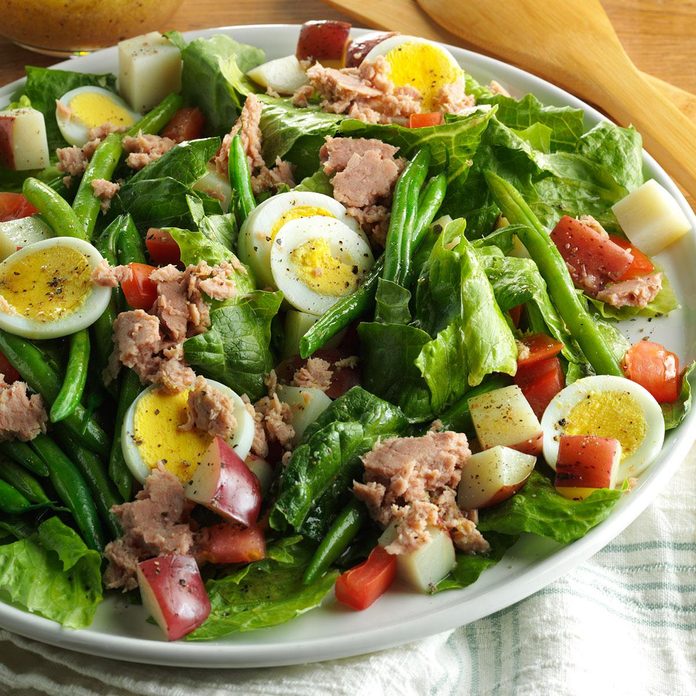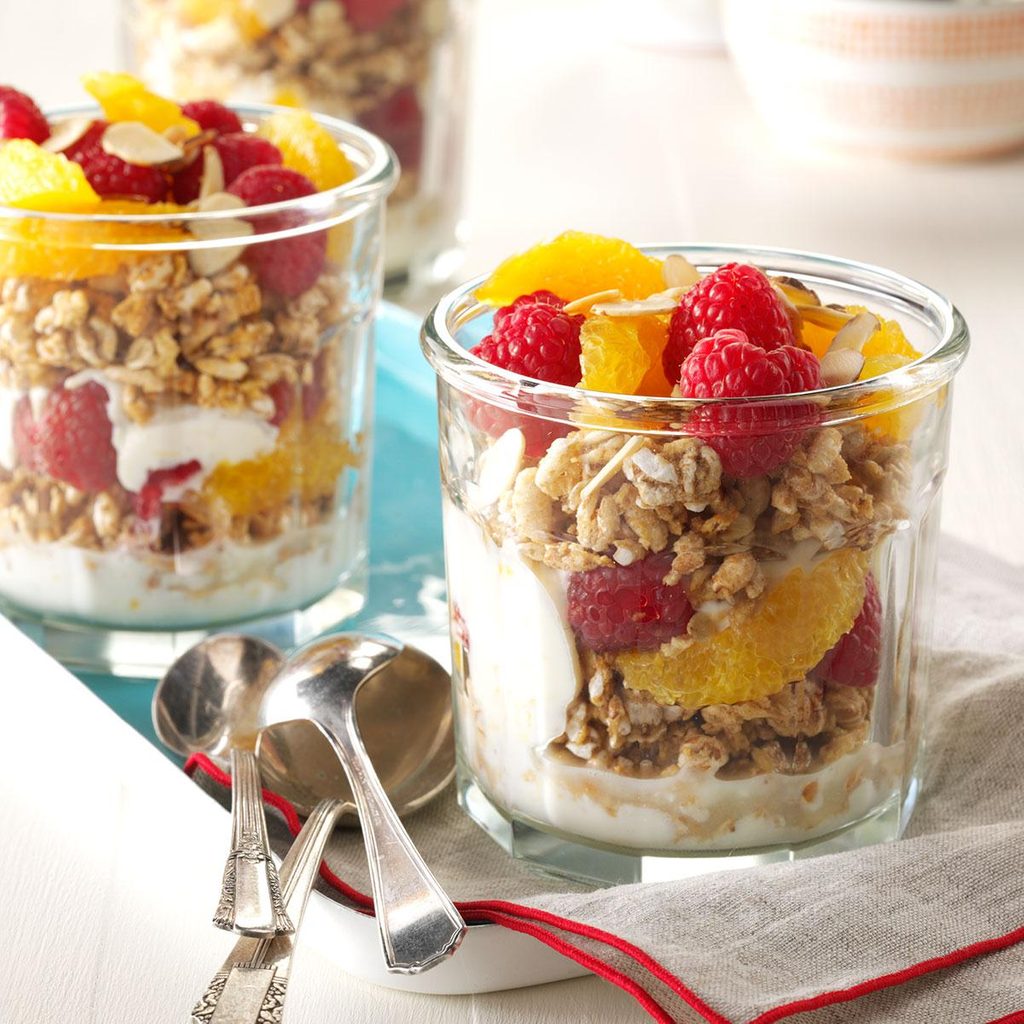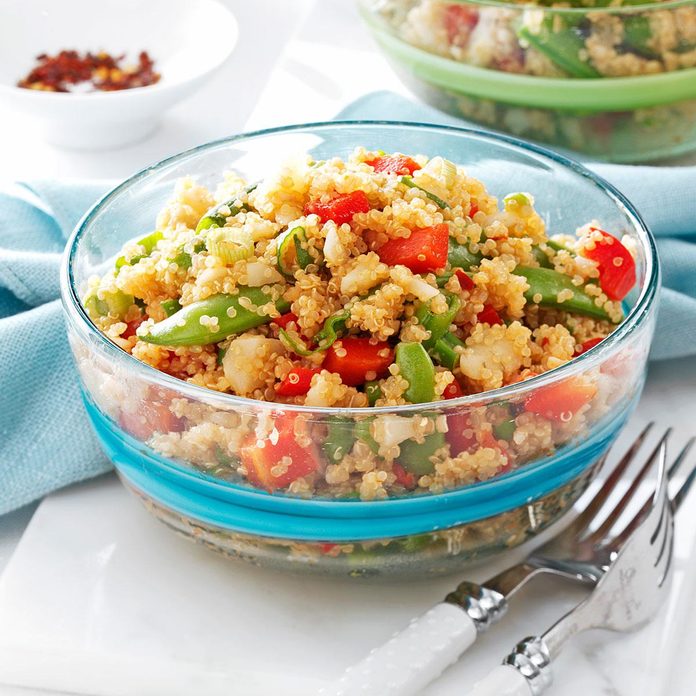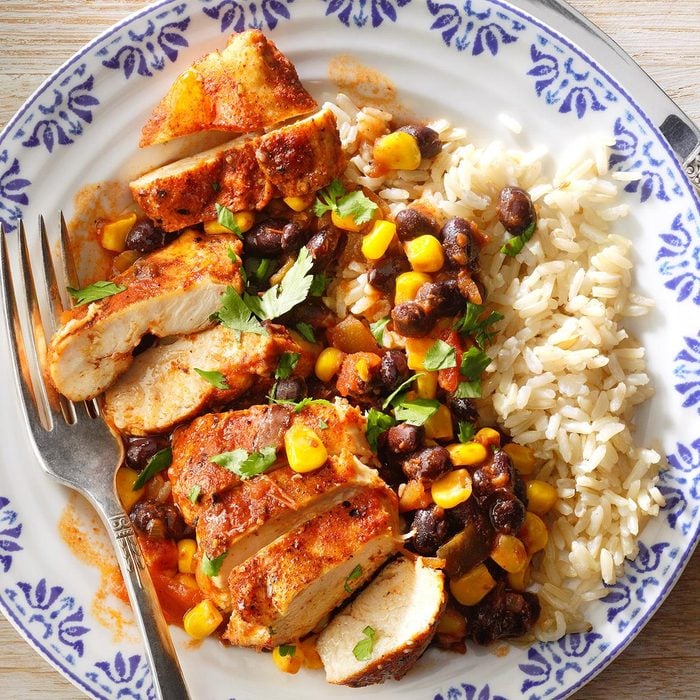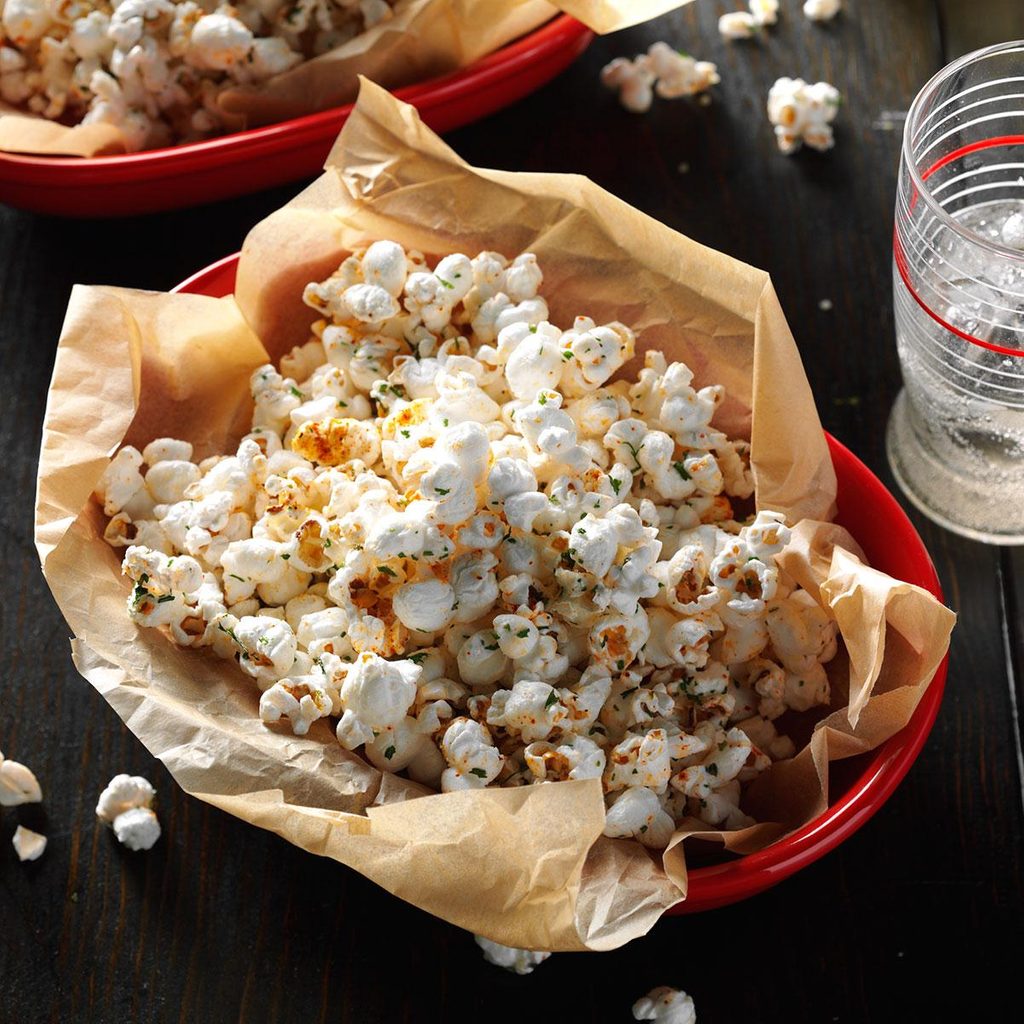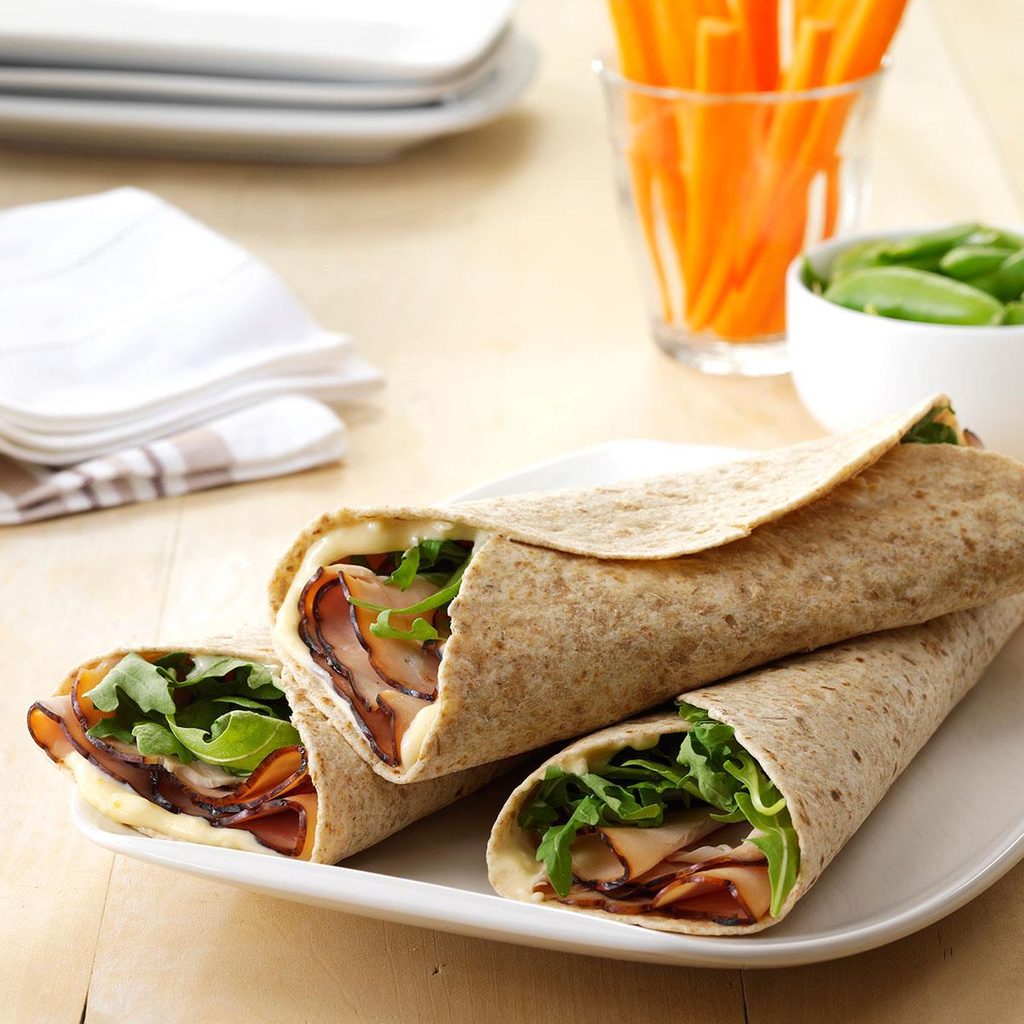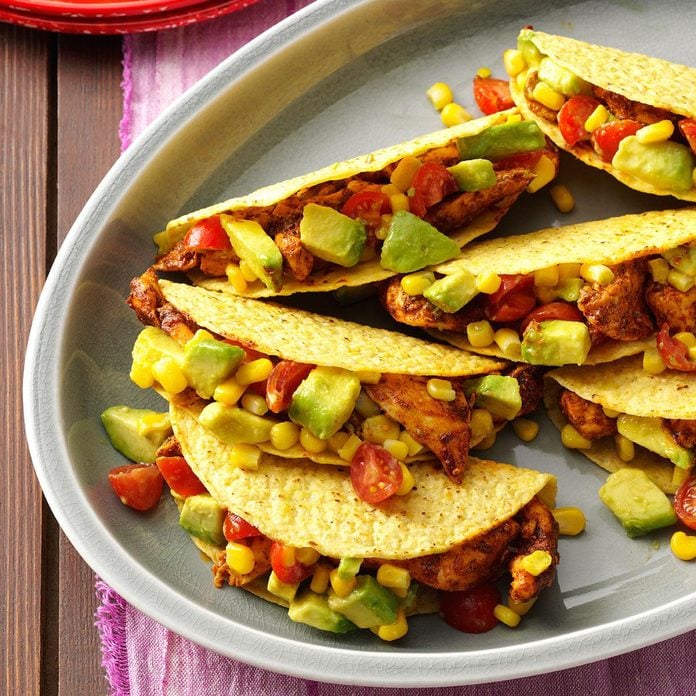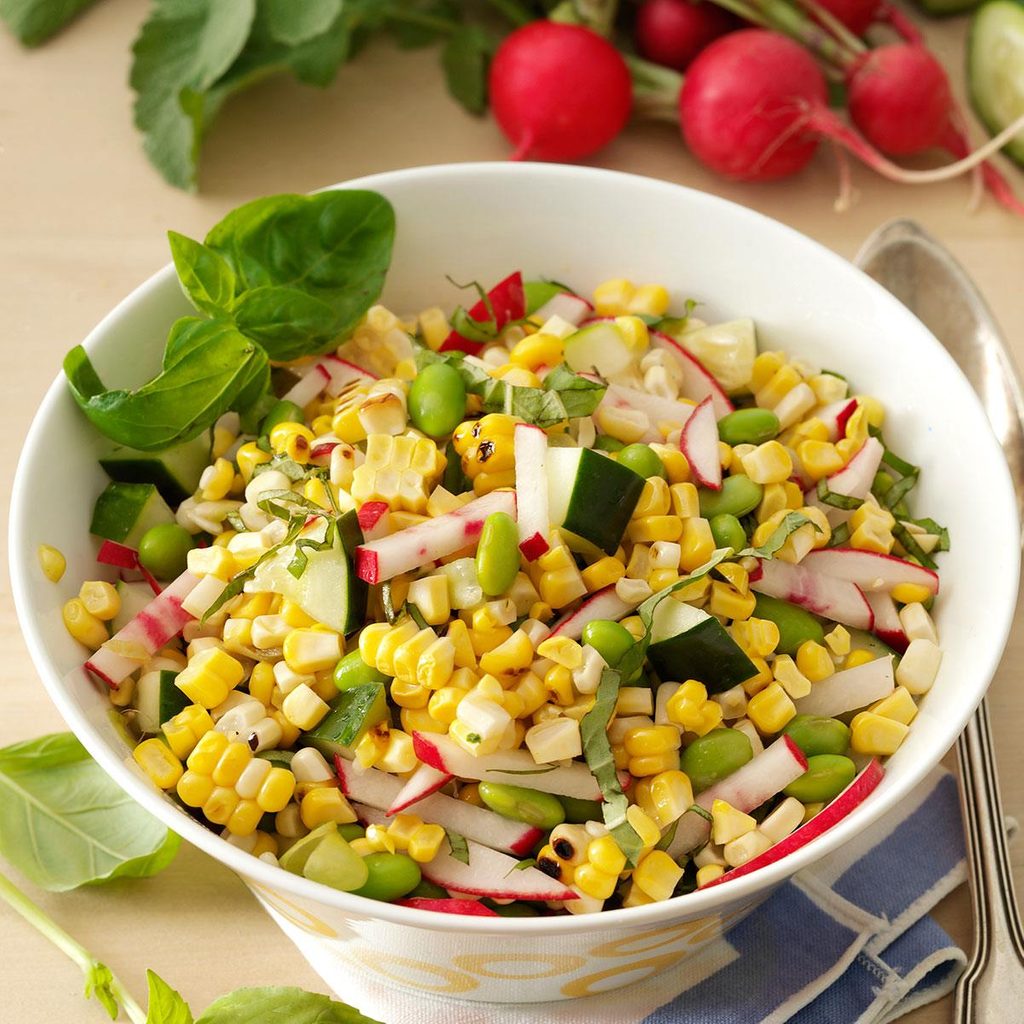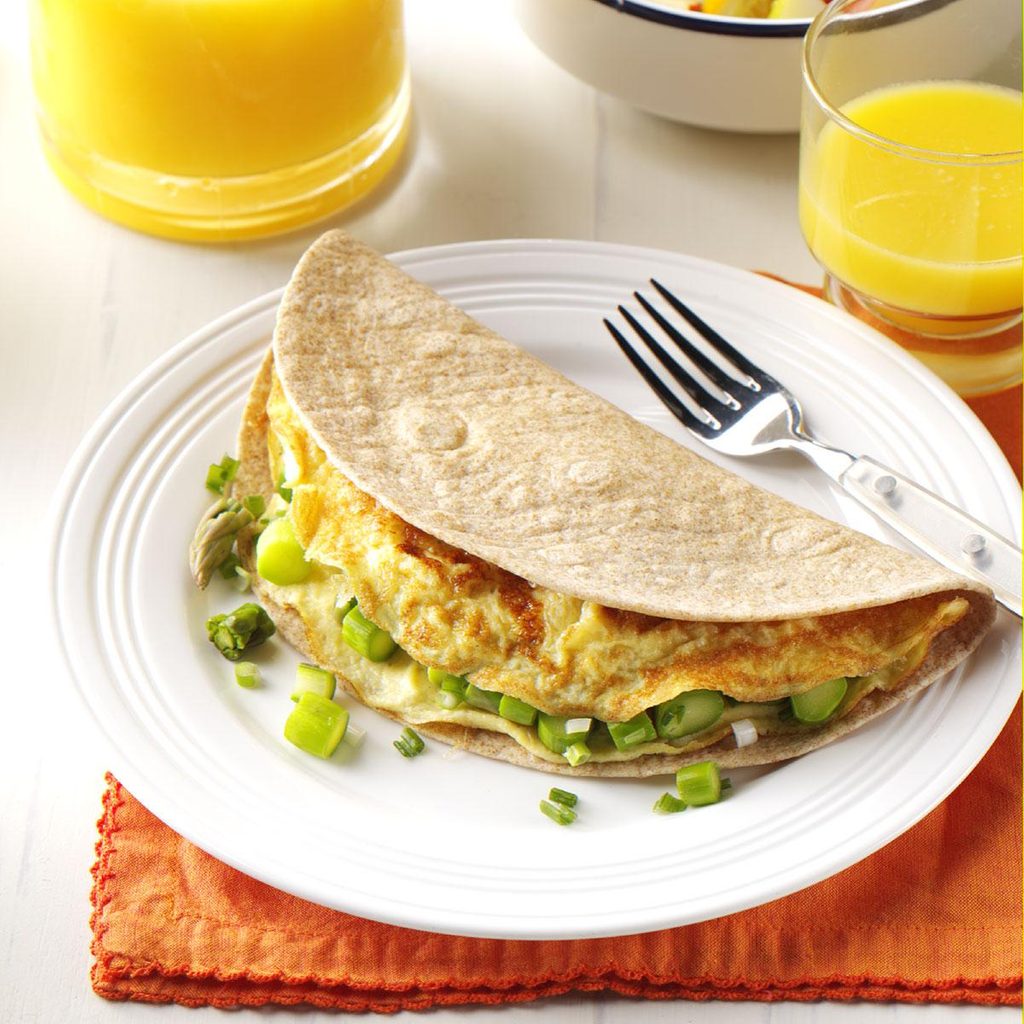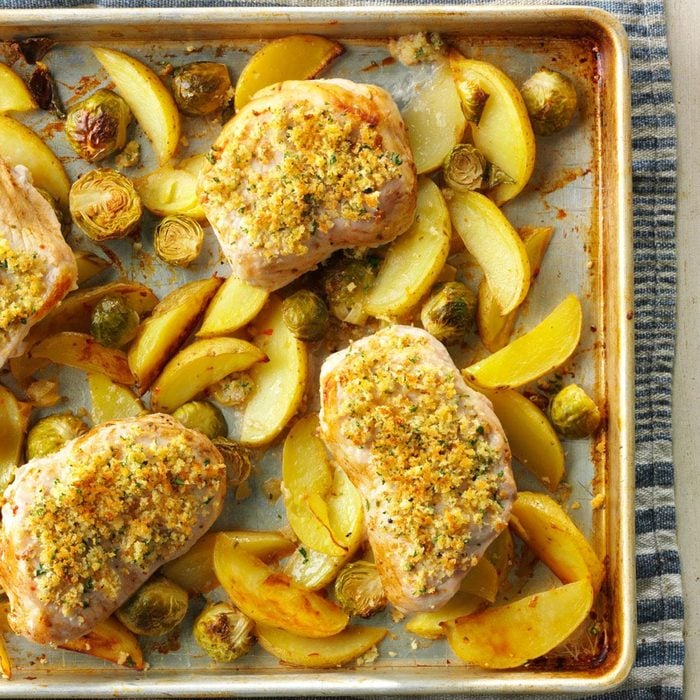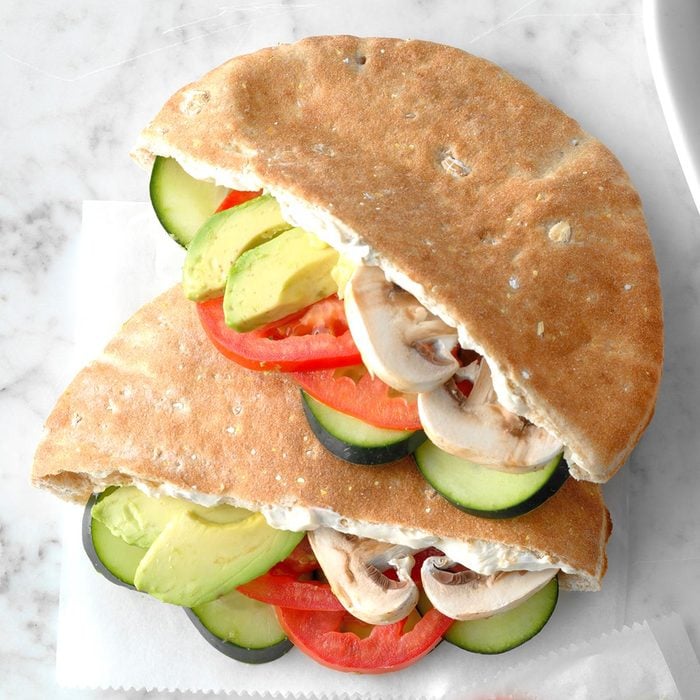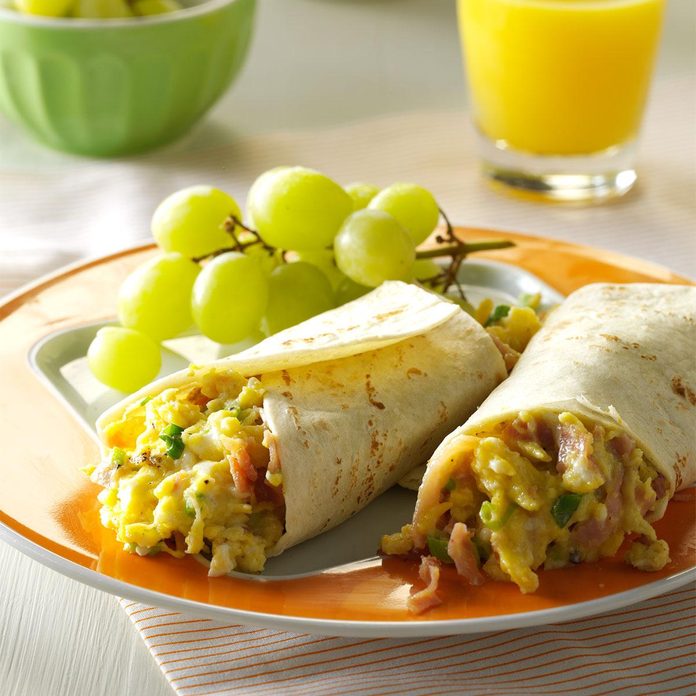ⓘ
We all know we’re supposed to drink lots of water. But that can be hard to do when water tastes so…watery. Luckily, it’s possible to get hydration from a variety of drinks, but we have to be careful that we’re not having too much of the ones that dehydrate.
That’s right: Some liquids actually encourage more water to leave your body. Plus a lot of tasty drinks include too much of things you’re looking to limit or cut out altogether, like sugar, carbs and a bunch of calories. Our list will help you determine which beverages are best for hydrating—and which to avoid.
Do you really need 8 glasses of water a day? Find out what happens when one writer upped her intake.
The Best Hydration Drinks
 Roman Juchimcuk/Shutterstock
Roman Juchimcuk/Shutterstock
Curious to see which beverages are the best for keeping enough fluid in you? The first three are hands-down your best hydrating choices; the rest are nice supplements.
Water
Surprised? Plain water is the best way to hydrate, no second guessing necessary. And this stylish water bottle makes it easy to drink enough.
Milk
Because it’s so much thicker than water, you might think that milk could dehydrate, but that’s not the case. In addition to calcium and vitamin D, milk contains protein to keep you fueled on even the hottest of days, another thing water can’t do. Milk: It’s not just for kids. Should you be buying organic milk? We found out.
Fruit-infused water
If it’s hard for you to drink plain water all day, infusing your water with fruit is a healthy way to add flavor without adding sugar. Our favorite combinations? Try adding lime and basil, cucumber with mint or any of these other infused water ideas. Bonus: You can flavor your own water with this handy infuser water bottle.
Fruit juice
Fruit juice contains about 85 percent water, which makes it super hydrating (just make sure you’re picking 100 percent fruit juice). The vitamins within natural fruits are also healthy. Be mindful of the sugar content, though, as juices can be packed with added sugars, which can inhibit hydration. If you’re drinking a lot of fruit juice, water it down. And for a special treat, why not freeze juice pops? Here’s a cantaloupe ice pop recipe with minimal sugar.
Watermelon
OK, so this isn’t a drink…but every time you eat watermelon, you’re retaining 92 percent of the liquid you’re eating. That’s better than fruit juice! You can try these other hydrating foods, too.
Sports drinks
Advertisements rave about the hydrating power of sports drinks, like Gatorade, which made us suspicious…but they’re actually onto something. The electrolytes, a science-y word for salts, in sports drinks can make hydration more effective. (Not to be too gross, but you know how sweat’s kinda salty? You want to add that back into your body.) Sports drinks also taste more flavorful than water, so they’re easier to drink quickly for those who force themselves to hydrate or who need quick hydration, like athletes. Again, watch the sugar and carb content, especially if you’re not working out. Unless you’re running a marathon, one rehydration drink is probably enough.
Tea
Caffeine-free teas are great, especially if it’s just an infusion of leaves in hot water. It doesn’t matter whether it’s herbal, black, green or chamomile; hot or cold—tea is just about as hydrating as water. Tea is also packed with antioxidants. While the best option might be to avoid caffeine in general (it’s a diuretic, meaning it dehydrates!), drinking even regular tea in moderation will help you reach your daily goal.
Coconut water
Coconut water boasts 95 percent water content, which is better than fruit juice. It’s also typically healthier than juices and sports drinks when it comes to sugar content and added ingredients, but be sure to check the label! (Our best coconut recipes might not hydrate, but they’re good.)
Milk alternatives
The studies that found milk to be hydrating didn’t test other “milks,” like soy, coconut or almond, but the Cleveland Clinic recommended the unsweetened ones for kids as a way to keep hydrated in summer. So they’re a safe bet for adults, too. Here’s our ranking of dairy-free milks.
The Worst Hydration Drinks
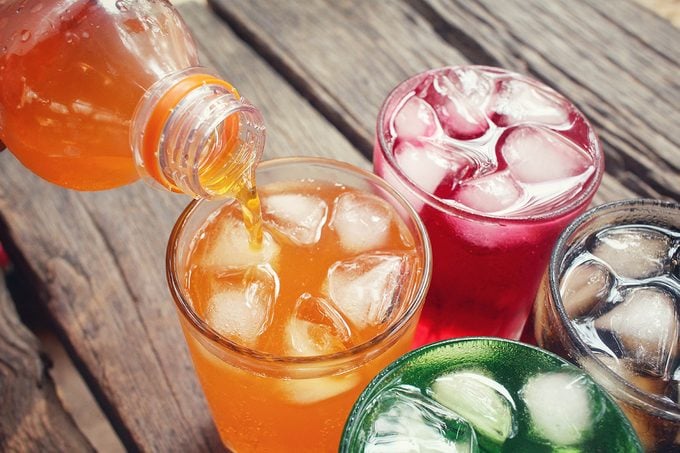 successo images/Shutterstock
successo images/Shutterstock
Sneaky fact: Some liquids can actually work against your hydration goals. Make sure you’re not reaching for any of these beverages next time you’re thirsty—they only dehydrate your body!
Soda
Soft drinks often contain caffeine, which is a culprit for dehydration; tons of sugar and sodium; and it’s bad for your bones and teeth, too. Although just about anything in moderation is fine, grabbing a Diet Coke when you’re thirsty might not do much to help. (Here’s the truth about diet soda.) Swap out soda for sparkling water if you love that carbonation while still giving your body the fluids it needs!
Beer
Consuming any kind of liquor removes water from your tissues, meaning you have to drink even more water to offset the effects. As a general rule of thumb, the higher the alcohol content, the more dehydrating your drink is. If you want to avoid dehydration, have a low-alcohol light beer.
Wine and hard liquor
Any alcoholic drink over 10 percent alcohol strength is a dehydrator, which means more of the liquid will leave your system than be absorbed. Most wines have around 12 percent, so they’re better than hard liquors (37 percent) but worse than beer (4-5 percent). Once again, we advise moderation. (How about a mocktail recipe instead?)
Cocktails with hard liquors, like vodka and rum, can be deceiving, especially if the recipes also include soda or fruit juice. Keep yourself hydrated by always drinking one glass of water for every alcoholic beverage you have—and consider switching to something less potent (like beer or wine)!
Hot cocoa
The bad news? One cup of hot chocolate contains more sugar and calories than a can of soda, dehydrating your system. The good news? You’re probably not drinking this in the summer, when it’s most important to consciously hydrate. In the winter, people tend to eat more soups and stews, which offer hydration, so having the occasional hot cocoa isn’t going to hurt.
Coffee
In moderation, coffee isn’t too bad, but once you go past that second cup, your body really starts to suffer. Drinking more than 200-300 milligrams of caffeine—the amount in two to three cups of coffee—has been shown to lead to dehydration. To keep yourself safe, switch to decaf or limit yourself to a cup or two. Bonus: Less coffee can make you less anxious.
Lemonade
Although the sweet-and-sour flavor can be tempting in the heat, lemonade is packed with sugars that don’t offer much toward your body’s needs. Swap this out for water infused with lemon slices and you’ll feel much healthier!
Sweet tea
This Southern staple screams summer, but when it comes to hydration, it’s not so sweet. The amount of added sugar in this drink cancels out any benefits that come with tea’s antioxidants, so it’s more like a dessert than a drink. That doesn’t mean you can’t drink it…it just means you have to drink plenty of water with it, too!
Energy drinks
Packed with caffeine, fake sugars and complicated chemicals, energy drinks are not hydrating. If you’re looking to energize while still getting in more liquids, we suggest tea.
Flavored milk
White milk on its own is totally fine, but you start to add unnecessary sugars when you throw flavors in there. Avoid chocolate, strawberry and vanilla milks and stick to good ol’ plain until you’re fully hydrated.
Smoothies
Fruit is healthy to eat on its own, but sometimes you can have too much of a good thing! Smoothies pack more fruit (read: more sugar) into your drinks than you’d think. Add that to the thick consistency and you may have a recipe for dehydration. That’s not to discount the other health benefits of smoothies, though. They’re great to refuel after exercise or kick-starting your day with a dose of vitamins. If you want to up the hydration factor, an easy solution is to double the amount of ice in your recipe. This will water down the drink without changing the taste too much. Try this trick on our amazing smoothie recipes.
Here's What to Eat After a Workout
Tarragon Tuna SaladIt's surprising how a few herbs can brighten up tuna salad. Made with reduced-fat mayonnaise, this version gets its zip from mustard. It makes a terrific light lunch or Sunday brunch dish. —Billie Moss, Walnut Creek, California
Ginger-Kale SmoothiesSince I started making this green smoothie recipe for breakfast every day, I honestly feel better! Substitute any fruit and juice you like to make this recipe your own healthy blend.—Linda Green, Kilauea, Kauai, Hawaii
Here's why ginger is such a smart thing to eat after the gym.
Fruit-Filled French Toast WrapsHere’s my go-to whenever we have brunch guests. If I have extra berries, I just make a fruit salad for later. —Dawn Jarvis, Breckenridge, Minnesota
Peanut Butter OatmealMy son and I eat this peanut butter oatmeal recipe every day for breakfast. It's a hearty, healthy way to jump start our morning. — Elisabeth Reitenbach, Terryville, Connecticut
Find more recipes for a healthy breakfast on the go.
Stir-Fry Rice BowlMy meatless version of Korean
bibimbap is tasty, pretty and easy to tweak for different spice levels. —Devon Delaney, Westport, Connecticut
Cashew-Curry Chicken SaladMy husband and I fell hard for the curried chicken salad from our grocery store deli, and I knew I could find a way to make something similar. This greek yogurt chicken salad has become one of our favorites to take on trips to the beach. —Janine Cooper-Moren, Portland, Oregon
Peach SmoothieWhip up this creamy peach smoothie as a refreshing and nutritious snack or a quick chilled breakfast. Because you can use frozen fruit, you don't have to wait until peaches are in season to enjoy this delicious smoothie. —Martha Polasek, Markham, Texas
You can create high-protein smoothies with whole foods—here's how.
Black Bean Chip & Dip BurgersI finally invented a healthy quinoa burger that wasn't dry and crumbly or really boring. These fit the bill—even my grandkids prefer them over hamburgers. They taste like chips and dip in a burger! —KT Rehrig, Allentown, Pennsylvania
Colorful Quinoa SaladMy youngest daughter recently learned she has to avoid gluten, dairy and eggs, which gave me a new challenge in the kitchen. I put this dish together as a side we could all share. We love it for leftovers too. —Catherine Turnbull, Burlington, Ontario
Sweet Potato and Egg SkilletI try to incorporate nutritious sweet potatoes in meals as often as possible, especially with breakfast. I came up with this recipe to feed my family a healthy, hearty breakfast—and it worked! —Jeanne Larson, Rancho Santa Margarita, California
Summer Salad by the LakeI came up with this recipe to show appreciation to all the teachers at my son’s school. The dish had to be as special as the teachers, who always go the extra mile for their students. I think this salad did the trick! It's hearty, earthy, sweet and loaded with nothing but good stuff. —Ramya Ramamurthy, Fremont, California
Coconut-Ginger Chickpeas & TomatoesThis is my go-to quick dish. When you add tomatoes, you can also toss in some chopped green peppers (jalapenos, if you like heat) to make it even more colorful. —Mala Udayamurthy, San Jose, California
Banana Oatmeal PancakesThese pancakes have less sodium per serving than other pancakes made from mixes. Decrease sodium even further by stretching the mix with banana, oats and walnuts. In our house we just sprinkle these with a little confectioners' sugar, because the fruit is so sweet you don't need syrup. — Patricia Swart, Galloway , New Jersey
Did you know banana packs all sorts of health benefits?
Avocado & Garbanzo Bean Quinoa SaladThis delicious quinoa avocado salad is high in protein and holds well in the fridge for a few days. If you make it ahead, add avocados and tomatoes right before serving. —Elizabeth Bennett, Seattle, Washington
Chewy Honey Granola BarsThere's sweetness from the honey, chewiness from the raisins, hints of chocolate and cinnamon, and a bit of crunch. To save a few for later, wrap individual bars and place in a resealable freezer container. When you want a satisfying treat on short notice, just grab one and let it thaw for a few minutes. —Tasha Lehman, Williston, Vermont
Spinach-Mushroom Scrambled EggsMy husband and I had breakfast at a hotel and enjoyed an amazing mushroom and egg dish. As soon as I got home, I made my own rendition. —Rachelle McCalla, Batesville, Arkansas
Curried Quinoa and ChickpeasQuinoa contains more protein than other grains, and that protein is of unusually high quality for a plant food. That makes this a great filling main dish and the blend of flavors and colors will bring everyone at the table back for more.
—Suzanne Banfield, Basking Ridge, New Jersey
Classic Avocado ToastThis is such an easy way to add avocados to your diet. Use healthy multigrain bread and top with sliced radishes and cracked pepper or lime zest, or chipotle peppers and cilantro. You'll want to make this avocado toast recipe every morning! —Taste of Home Test Kitchen, Milwaukee, Wisconsin
Zucchini Crust PizzaMy mother-in-law shared the recipe for this unique pizza with me. It's just right for brunch, lunch or a light supper. Loosen the nutritious zucchini crust from the pan with a metal spatula. —Ruth Denomme, Englehart, Ontario
Strawberry-Carrot SmoothiesMy children resist veggies, but they love this carrot smoothie. It packs in lots of good-for-you fruits and veggies—but to my kids, it's just a super delicious breakfast. —Elisabeth Larsen, Pleasant Grove, Utah
Shrimp & Broccoli Brown Rice PaellaYears ago my husband and I were vacationing in France and came across an open market where a man from Spain was making paella in a skillet; we've been hooked ever since. I love to whip this up for a large group, but if the gathering is small, I know I can easily freeze leftovers for another time. —Joni Hilton, Rocklin, California
Quick Nicoise SaladLike the French, I pack my classic Nicoise salad with veggies, potatoes, tuna and eggs. Cooking the potatoes and beans together helps the dish come together fast. —Valerie Belley, St. Louis, Missouri
Powerhouse Protein ParfaitsParfaits have marvelous taste and texture, but many are loaded with sugar and leave you peckish for more. Here’s my protein-inspired option with yogurt, fruit and nuts. —Jen Hubin, Minnetonka, Minnestoa
Asian QuinoaI love to cook and come up with new recipes. I serve this dish at least once a month and sometimes more. For a different twist, I'll occasionally add a scrambled egg or use soy sauce instead of the rice vinegar. —Sonya Labbe, Santa Monica, California
Black Bean Chicken with RiceThis spicy family favorite calls for just a few basic ingredients, including chicken, black beans and rice, so it’s quick and easy to stir up in your skillet on a weeknight. —Molly Newman, Portland, Oregon
Nacho PopcornMy husband and I like to munch on this while watching TV. The nacho flavoring is a zesty alternative to butter and salt. —Linda Boehme, Fairmont, Minnesota
Turkey & Apricot WrapsFor these wraps, I combined the traditional Southern appetizer of jam and cream cheese with the turkey, apple and Brie sandwiches we ate at my bridal luncheon. I like to sneak fresh spinach into recipes because it has such a mild flavor. —Kim Beavers, North August, South Carolina
Chicken Tacos with Avocado SalsaA few people in my family have special dietary needs, but luckily, these chicken tacos work for all of us. I toss up a simple green salad and have a meal we can all enjoy together. —Christine Schenher, Exeter, California
Farmer's Market Corn SaladI love fresh corn on the cob, especially grilled, so I am always looking for innovative ways to serve it. This recipe takes the corn right off the cob and combines it with fresh basil. —Haras Cindie, Jupiter, Florida
Asparagus Omelet Tortilla WrapSince this omelet is packed with whole grains, veggies and protein, all I have
to do is add a side of fresh fruit for a healthy breakfast before work. Instead of asparagus, sometimes I make this with fresh spinach. —Bonita Suter, Lawrence, Michigan
Pan-Roasted Pork Chops & PotatoesAn easy marinade gives these chops lots of flavor, the crumb coating packs on crunch and Brussels sprouts add nutrition! —Char Ouellette, Colton, Oregon
Fresh Veggie PocketsOne summer I worked at a health food store that sold sandwiches. We were close to a college campus, so I made lots of these fresh-filled pitas for the students. Crunchy with crisp vegetables and nutty sunflower kernels, they're a fast-to-fix lunch when you're on the go.
-Linda Reeves, Cloverdale, Indiana
Ham & Egg WrapsThis is a great kid-friendly recipe that takes only 20 minutes to prepare and cook.—Sharon Haswell, Cheshire, Massachusetts



